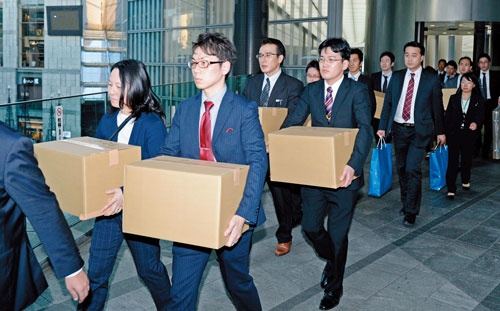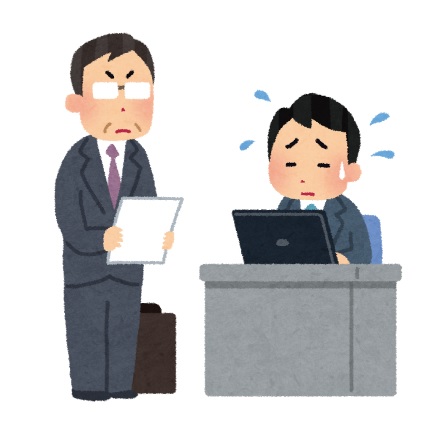「税務調査の真実: テレビドラマとの違い」
〜前回のつづき〜
●どこまで経費にできるのか?

副業で認められる経費とは
ザックリ事業に関わるもの全てです。
売上に関係するお金です。
この売上を上げる為に
必要だったと思われるお金。
あとは開業の準備にかかるお金。
いわゆる事業に関するお金ですよね?
そういうものは
個人事業でも経費として認められます。
色んな項目があると思います。
ケースバイケースで
人によって違います。
だから税理士さんに
最終的には相談してして欲しい。

例えばペット代。
ペットに関する仕事をしている人であれば
必要経費として認められる。
ただ家で飼ってるだけでは
仕事に関係ないのでは?
になります。
そのへんは飲み代や
どこかに行ったとか
全てその人によって違います。
同じ項目でも
その人の業種によって
経費の取り扱いは変わってきます。
仕事に関連するかどうか。
こういう項目だから
ダメなんだではなくて
人によって違うので
そこは本当に
ケースバイケースになるんです。
だから税理士さんに
最終的には相談する必要がある。
税理士さんによっても
見解が変わるので
「ん???」
と思ったらセカンドオピニオンとして
他の税理士さんにも相談してみてください。
無料相談なんかもやってるので。
何人かそういう税理士さんに相談してみて
肌感が合う人を探すのが
いいのではないでしょうか。
●恐怖の税務調査

税務調査ってどんなイメージですか?
「突然押しかけてきて
部屋中荒らされるんでしょ?」
とか
「何日間にわたって
問い詰められるんでしょ?」
とか
「悪いことしてる会社に来るんでしょ?」
とか
間違えてはいないけど
間違えている部分もあります。

テレビドラマの税務署という
イメージがあると思うんですけど
50人ぐらいでわーー!!っと来て
「動くなー!!」

みたいな。
それって嘘なのか?
税務署と言っても大きく2つあります。
・国税局
・税務署
国税局というのが
税務署の上司みたいなものなんですよ。
大口の滞納者とか大口の法人なんか
金額が大きい所を担当するんですよ。
税務署というのが
ほぼ一般の人の担当です。
だからほとんどの人がやり取りするのは
税務署の方です。
国税局の方をイメージしているかもしれません。
「マルサの女」
という映画が昔有名になったんですけど
(1987年 監督:伊丹十三)

(出典 Amazon)
あのイメージが
みんな凄く強いんですよね。
だからこういうイメージが
やはりあると思うんですけど
マルサって一体何なんだと言うと

国税局の中のいわゆる特殊部隊なんですよ。
だから全然他の国税局の担当や
税務署が来た時と全く違うんですよね。
強制捜査なので
映画のイメージとほぼ同じだと思って
いいと思います。
一億円以上の脱税をしているであろう
と言われている所に来ると言われています。
だからほとんど
一般の人は関係ないんですよね。
一億円以上の脱税ですから。
なかなか普通には出くわさないというか
出会わない部隊です。
なので別にそこまで構える必要はありません。
ほとんどが税務署対応になります。
ちゃんと納税していれば何も起きません。
なのでマルサというのと国税局で違うし
税務署と国税局はちがいます。
〜〜〜つづく〜〜〜
Special Thanks college president Ryo.
●おまけ
≪≪Chat-GPTくんによる要約→perplexityちゃんによる文章まとめ≫≫
副業の経費については、事業に関連する支出が基本的に認められます。具体的には、売上を上げるために必要な費用や開業準備にかかる費用などが該当します。しかし、経費として認められるかどうかは、個人の業種や状況によって異なるため、ケースバイケースです。同じ項目でも人によって取り扱いが変わることがあります。そのため、経費の判断に迷った場合は税理士に相談することが重要です。複数の税理士に意見を求め、自分に合った専門家を見つけると良いでしょう。
また、税務調査には国税局と税務署の2種類があります。一般的には税務署が担当し、大規模な脱税が疑われる場合に国税局の特殊部隊「マルサ」が関与します。しかし、一般の人がマルサと接触することはほとんどなく、正しく納税していれば特に恐れる必要はありません。税務調査は通常、適正な納税をしている限り問題ないため、安心して対応できるでしょう。
Citations:
[1] https://www.freee.co.jp/kb/kb-fukugyou/sidejob-cost/
[2] https://kigyo.gmo/magazine/sidejob/list/side-job-expenses/
[3] https://lotsful.jp/biz/articles/1888
[4] https://virtualoffice-resonance.jp/column/side-business-expenses/
[5] https://www.diners.co.jp/ja/entry_form/corporate/fukugyou_keihi.html
[6] https://biz.moneyforward.com/tax_return/basic/56066/
[7] https://www.yayoi-kk.co.jp/shinkoku/oyakudachi/fukugyo-setsuzei/
[8] https://workingswitch-elk.com/column/detail/114
≪≪Chat-GPTくんによる英訳≫≫
~Continuation from the previous section~
【To What Extent Can Expenses Be Deducted?】
As for deductible expenses in side businesses, in short, it refers to anything related to the business.
It’s the money related to generating revenue.
It’s money that is considered necessary to increase that revenue.
There’s also money spent preparing to start the business.
In other words, it’s the money related to the business, right?
Such expenses are recognized as deductible even for individual businesses.
There are various categories of expenses.
It varies from person to person, case by case.
That’s why, in the end, you should consult a tax accountant.
For example, pet expenses.
If you’re working in a business related to pets, those expenses can be recognized as necessary business expenses.
However, if you’re just keeping a pet at home, it wouldn’t be considered related to your business.
This also applies to expenses like dining or going somewhere, depending entirely on the individual’s situation.
Even the same type of expense can be treated differently depending on the person’s industry.
It all depends on whether it’s related to the business.
It’s not about “this expense is not allowed” but rather that it varies by person.
So, it really is case by case.
That’s why you need to consult a tax accountant in the end.
Even tax accountants can have differing views.
If you’re thinking, “Huh???”, consider getting a second opinion from another tax accountant.
There are free consultations available too.
Try consulting with several tax accountants and find someone who feels like a good fit for you.
【The Fear of Tax Audits】
What image do you have of tax audits?
“Do they suddenly show up and turn your place upside down?”
Or,
“Do they interrogate you for days?”
Or,
“Do they only come to companies doing something wrong?”
These ideas aren’t completely wrong, but there are some misconceptions.
Many people probably have an image of tax audits from TV dramas.
Like when about 50 people suddenly burst in shouting, “Don’t move!”
Is that a lie?
Well, there are two main types of tax offices.
・The Regional Taxation Bureau (Kokuzei Kyoku)
・The Local Tax Office (Zeimusho)
The Regional Taxation Bureau is like the boss of the local tax office.
They handle large-scale tax evaders and big corporations—cases involving large sums of money.
On the other hand, the local tax office mostly deals with ordinary individuals.
So, for most people, the interaction will be with the local tax office.
People might imagine the Regional Taxation Bureau.
There’s an old movie called A Taxing Woman (1987, directed by Juzo Itami), and that’s where a lot of this image comes from.
That’s why people have these strong ideas about tax audits.
So, what exactly is “Marusa”?
Marusa is a kind of special unit within the Regional Taxation Bureau.
It’s totally different from other regional tax staff or the local tax office.
Marusa performs forced investigations, so in that case, it’s pretty much like the movies.
It’s said they show up when it’s suspected that a person or company has evaded taxes of over 100 million yen.
So, for most regular people, it’s irrelevant.
We’re talking about tax evasion exceeding 100 million yen.
It’s not something you commonly encounter or come across.
So, there’s no need to be overly worried about it.
Most people will deal with the local tax office.
If you pay your taxes properly, nothing will happen.
So, Marusa and the Regional Taxation Bureau are different, and the local tax office is different from the Regional Taxation Bureau.
Special Thanks OpenAI and Perplexity AI, Inc


